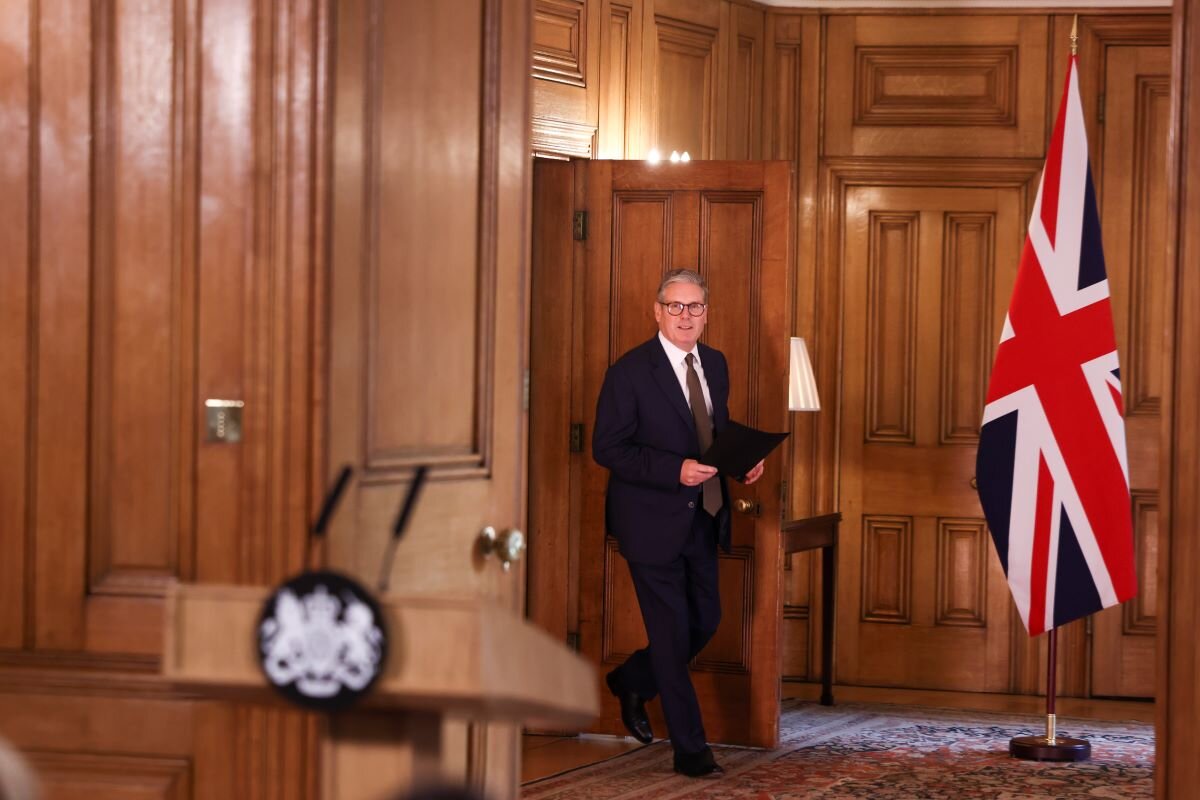Last Thursday, the UK headed to election booths across the country and delivered a decisive climate vote of confidence. The parties of the left and centre committed to strong action on climate, securing almost 80% of seats in Parliament. 19 out of 23 Conservative net zero sceptics lost their seats. Four Green MPs were elected, and 36 out of 51 “blue wall” seats flipped – seats where climate and nature were higher priorities.
With a clear mandate for climate action, all eyes are now on Labour to deliver.
Supercharging the UK’s energy transition
Labour will need to hit the ground running to fulfil its 2030 clean power mission – making decisions quickly on the scale of the next renewables auction round (CfDs), taking actions to unclog the planning system, unblock the grid and set up GB Energy. They must not forget the less glamorous but equally important clean tech solutions to get the UK off high-cost fossil gas, including demand-side flexibility, long-duration energy storage and green hydrogen.
They have already sent a strong signal by immediately removing the effective ban on onshore wind – one of the cheapest (and quickest) forms of clean energy. This is a great first step towards helping Brits lower their bills and support energy independence.
Ending new oil and gas licences is a key step in the UK’s transition away from fossil fuels, and Labour’s pledge is groundbreaking. Managing this transition will be a mammoth task and an equally huge opportunity to build prosperity in parts of the country that need it most, whilst fulfilling the UK’s responsibility to lead on climate action. This move needs to be accompanied by a clear long-term plan to help oil and gas workers transition into clean energy.
Ensuring energy-intensive industries can utilise growing renewable electricity supply is also key. In the long term, Labour needs to bring down the cost of the power system, but for now short-term relief from high energy prices is crucial. The new government should increase relief from network charges under the British Industry Supercharger – and could go further by moving expensive policy costs from electricity bills to taxation.
The government will also need to quickly get to grips with how they can turn around the sluggish delivery of retrofit schemes. Our locally led retrofit schemes are massively under-delivering, with short-term funding pots leading to high levels of uncertainty and a collapse in capacity within installer supply chains and local authorities. Labour will need to listen to delivery partners to understand where the pinch points are, and how these can be quickly addressed.
Investing in the UK’s green and growing future
This Autumn Budget will be the first chance for Rachel Reeves to prove herself as Britain’s first “Green Chancellor”. Without finance, nothing that needs to get done will get done. Fortunately, Reeves will be met with a world-class private sector which has not wavered in its view that UK green growth is the ‘economic opportunity of the 21st century’. With numerous reports, including CBI’s recent report that found the UK’s green economy grew 9% in 2023 and supported hundreds of thousands of high-quality jobs, there is little doubt about the economic potential of the net zero transition. The administration of Rishi Sunak was strikingly out of touch business on the scale of this opportunity. They will now have a partner government that is equally serious about the transition.
Labour’s manifesto, and Green Prosperity Plan, clearly recognised this potential. They have set out several ambitious commitments, including delivering a Global Green Finance Capital, a ‘mission-led’ industrial strategy, and a new National Wealth Fund.
After years of Conservative government dither and delay, the new Chancellor must also focus on delivery. Committing in her first 100 days to a Net Zero Investment Plan will be the key to ensuring that public investment – underpinned by coherent policy and regulation – delivers bang for buck across the four nations of the UK.
One sector that did not fall prey to the culling of the Green Prosperity Plan is steel. Labour committed £2.5bn to the industry, on top of £500m pledged by the Conservatives. Business and Trade Secretary Jonathan Reynolds has already been pushing for a better deal for Port Talbot. He will have to act quickly to articulate how the Clean Steel Fund will be spent, and how it will align with a broader green industrial strategy. E3G analysis shows a better deal for the steel industry is within reach, but it requires an ambitious government to act quickly and decisively to achieve it.
Restoring the UK’s climate leadership
The new government must also focus efforts on international climate diplomacy as we enter the run-up to COP30 next year. Urgent action is needed to enable the global transition to a just, clean economy with the ambition level needed to keep 1.5°C warming within sight. Labour has indicated they seek to restore UK climate leadership and build global alliances to enable this ambition – and with the far right gaining ground in many Western elections, the role of the UK will be ever more crucial.
David Lammy wasted no time in embarking on his first international trip to Germany, Sweden and Poland – a strong signal of intent to reset the UK-EU relationship, with climate and energy at the centre. He must now clearly define the UK’s climate diplomacy priorities, focusing on re-establishing relationships with Global South countries, including through supporting reform of international financial architecture, and an ambitious new quantified goal on climate finance (NCQG) at COP29. He should also strengthen partnerships and collaboration by laying out clear plans for the Clean Power Alliance, which should bring together existing energy initiatives to increase coherence and impact.
The election of a Labour government with a landslide majority is a clear mandate for accelerated climate action and the potential to restore global climate leadership. The UK is back in the race to net zero.


